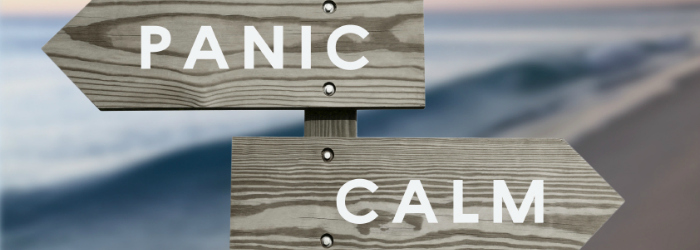Into the Heart of Mindfulness chapter extract

We’re sharing an extract from the first chapter of Ed Halliwell’s new book Into the Heart of Mindfulness. In his book, Ed takes the reader on a journey into the heart of mindfulness. Mixing memoir and personal reflection with traditional Buddhist teaching, elements of Western psychology and the ever-expanding science of mindfulness, Ed integrates the richness of the contemplative traditions from which the mindfulness movement came with sharp insights from the modern research laboratory.
Thigh muscles throbbing. Stomach somersaulting. Shoulders locked. Fingers quivering. Feet twitching. Teeth clenched tight. Pressure in the bridge of the nose. Hot and cold simultaneously behind the eyes. Pangs of panic gripping the chest, heart pulsing fast and hard. Anger, like a scream bellowing out from the midriff. A shield of hard depression encasing the skin, walling off the body from the outside world. Thoughts circling round and round, the same ruminations over and over again: ‘Why am I stuck like this? Is it ever going to end? Why can’t I be more like other people? Why can’t I cope? What’s wrong with me? I hate this, I hate this. I’m scared, still scared after all this time. This is never going to work. I am never going to get better. It’s useless. Useless. Useless!’
I’m learning to meditate. Perched atop a square, hard cushion in the corner of my bedroom, trying to pay attention to the movement of my breath, and this is what I’m noticing. It’s the same kind of anguish that’s accompanied every waking hour for the past two and a half years. The fear, the rage, the helplessness. But there’s a subtle and crucial difference this time. I’m beginning to observe these patterns of thought and feeling from a different place, from somewhere I didn’t previously know existed. Rather than feeling caught up entirely in the mental noise, the exhaustion, the tension, I’m beginning to watch what’s happening. Perhaps not yet with equanimity – as is meant to be possible with enough practice – but at least without feeling that my life is nothing but pain. A sliver of space is opening up between ‘me’ and the tormenting thoughts and sensations that are surging through ‘me’. Hmm, this is interesting . . .
Then – bang! I’m right back in it: ‘You stupid idiot! You’ve lost it. You’ll never be able to do this properly. It’s a waste of time. You’re sitting doing nothing when you should be sorting your life out. Ow, ow, ow, my head hurts, my legs ache, and as for my stomach . . . Oh, stop it, please stop it, I can’t stand this any longer. It’s not fair. Why is this still happening to me?’
ll right, hold on a minute. What am I supposed to be doing? I’m meant to label it, right? Okay. ‘Thinking’. It’s thinking. Not facts, just thinking. Let it be. Come back to the breath. The mind is wandering. No problem. Just bring it back gently. I can do this. I am doing it. Following the breath in, then out, in, out. Let thoughts and feelings do whatever they want. I don’t have to try to make them go away. It’s okay.
Bang! Once again, the gentle voice is drowned out by the goading of my old tormenter. ‘Oh come on! You don’t believe this stuff works, do you? You’ll never change. This is who you are. This has been going on for years, so why would meditation help when nothing else has. You’re wasting your time. It’s another fad. This is ridiculous. You’re messed up, you’re . . . ’
Okay, drop it. It’s still just thinking. Pause. Breathe. Now inhaling, now exhaling, back with the breath. It’s okay. It’s okay. It’s okay. Just look; just watch. No big deal.
So here I am. Sitting on a cushion, following the breath, watching the crazy ruminations, allowing the tension, getting caught up and then letting go, again and again.
I’ve been practising for a couple of months now – daily doses of five or ten minutes, as agreed with my meditation teacher. Initially, even this seemed too much – the invitation to experience just a little stillness, and its implied tolerance of anxiety, was too overwhelming for me. So we started with mindful tea-drinking. My challenge was to drink one cup a day, paying attention to all the sensations of taste, touch and smell, and returning to these whenever I noticed my mind descend into tangles of thought, as it desperately tried to crack the problem of ‘What is happening to me and why? And what can I possibly do about it?’
What was happening to me? Before the depression set in, life had looked and felt pretty good. In my mid-twenties, I had been deputy editor of one of the best-selling magazines in Europe, having graduated with flying colours from what is generally regarded as a top university. I had good friends, sometimes girlfriends, and the kind of lifestyle that many people my age would have envied. I worked long hours, but that included travelling to fancy hotels in exotic locations to organise photo shoots, attending parties with complimentary drinks, interviewing actors and actresses, sports stars and musicians, and coming up with ideas for stupid stories to amuse young men. Then, between games of pool, I’d commission writers to draft the features that my colleagues and I had dreamed up on a whim – whatever tickled our cynical and deprecating senses of humour.
This was the late 1990s, when men’s lifestyle magazines were at the height of their popularity, and there was a kind of unthinking fun to be had by those who worked on them. But while the free clothes and watches, the glamour and the prestige, the careless laughter, the buzz of thrill-seeking all satisfied a certain shallow craving for pleasure, under the surface my life was not so enjoyable. I had a series of romantic relationships, but they rarely lasted more than a few months. I had a seemingly fabulous career, but it masked an undercurrent of yearning for something more, although I had no idea what that something might be. I frequently batted away feelings of hollowness and melancholy, as well as vague premonitions of a fearful future. I was lonely, and when the parties ended I’d try to keep the worry away by playing myself at darts, drinking vodka and spacing out with Sky Sports News on the TV. But the more I tried to fill the days and nights with pleasure, the more the darkness loomed at the edges of my mind. Questions about the meaning of existence started to creep in, accompanied by nervous rumblings in my gut, especially during rare moments of quiet, which I tried to keep to a minimum.
Frightened of silence, I surrounded myself with noise. Frightened of change, I worked hard at a lifestyle that lacked the lively curiosity I’d nurtured through my university days. Finding a harsh outside world when I left the academic cocoon, I reacted by shutting down feelings and becoming hard of heart. Frightened of being hurt by others, I no longer shared any sense of vulnerability. Instead, I threw myself into ever more frantic activity, be it buying clothes, going to the gym or creating dramas with girlfriends.
I seemed to function well enough most of the time, surviving on the surface. Only a few times did the veneer crack, usually after a girlfriend’s rejection. Whenever this happened, anger and fear would shoot through my body, along with the sudden racing of a mind yelping from hurt, desperately searching for an exit from suffering. This sudden and scary automatic reaction would usually last for a few weeks or months, during which time I would barely eat or sleep, consumed by obsessive thoughts about how to put things right. The volcano of emotion would eventually subside, sometimes as a result of a new relationship, or by resurrecting the old one. Or there might be another form of distraction – perhaps a promotion or a holiday in the sun.
But the patch jobs and distractions ultimately failed to do the trick. Soon after the millennium turned, another fledgling relationship came to an abrupt end, and this time my escape tactics couldn’t divert me from the pain. There was no one new on the horizon. Attempts to throw myself into work projects didn’t satisfy: the conveyor belt of gadgets, models and puerile jokes was starting to lose its appeal – something in me called for an engagement of heart. A comfortable flat share with an old friend was also coming to an end, and I was secretly scared of living alone.
Loss of girlfriend, loss of companionship, loss of professional identity. Combined, it all felt too much to bear. It was like I’d been strapped to an out-of-control helicopter: my stomach lurched up and down as catastrophic thoughts (‘You’re going mad. This is a disaster . . . ’) rattled through my head in a crazed, repeating loop. Muscles were frozen in terror, fingers trembled, and my breath hardened to a shallow pant.
Seeing no way out, I collapsed. Or rather, the rickety façade that I thought was ‘me’ collapsed. After several weeks at work trying to pretend everything was fine, I called in sick, unable to face another week of going to the bathroom every twenty minutes to cry, fruitlessly berating myself to ‘get it together’. At home, things only got worse. Now I had all day to lie in bed or pace up and down, fretfully running through what was going wrong and how I might put it right. I passed the time chain-smoking (another futile diversion technique) and calling friends, family and even the Samaritans, hoping someone might offer an antidote to the poison that was eating me. Was I suicidal? No, but I desperately wanted the pain to stop.
You can find the author of Into the Heart of Mindfulness here.







